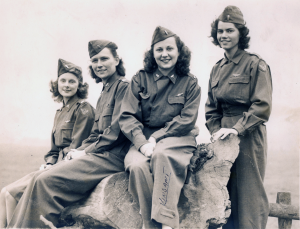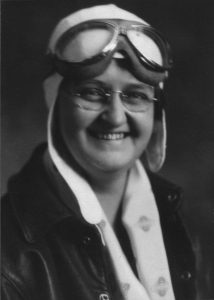Meet the former US Army flight nurses whom I interviewed for
Beyond the Call of Duty: Army Flight Nursing in World War II.
In 1986 as part of my research about flight nurse history and coping with war, I was privileged to interview 25 former US Army nurses about events of their flight nurse duty in World War II. Most of them are now deceased, but their stories live on in Beyond the Call of Duty: Army Flight Nursing in World War II.
The journal I kept of my time with each of them in 1986 when writing my dissertation offers a brief personal glimpse of these remarkable women. I am sharing edited versions of these journals, in the order in which the interviews took place. The actual interviews are in separate documents.
11th Interview
Jenny Boyle Silk
816 MAES Europe
8 May 1986
My trip to Tequesta, Florida to interview Jenny Silk took longer than expected. When I arrived in my rental car at Jenny’s two-story frame home, I felt as though I had been transported back in time to ante-bellum Georgia. Jenny explained that hers was a northern home. Originally from Wisconsin, she didn’t want a typical Florida house, and what she wound up with was charming. The furnishings, the sweet scent of flowers, the open windows to let the breeze cool the house, and the carefully tended back yard sloping down to the bank of a river all contributed to my wonderful feeling about Jenny’s home.
Jenny commented that she simply hadn’t had occasion to talk about her years as a flight nurse in World War II because no one had asked her about that time of her life in about 40 years. Although she was agreeable to being interviewed, she discounted any possible contributions she could make to my study of how nurses cope with war or even to a history of flight nursing in World War II. She needed perhaps more reassurance and guidance than most of the women I’ve interviewed. What she did talk about, however, especially spontaneously, was quite valuable.
To get Jenny comfortable with the procedure, I conducted the first part of the interview, then at her request we took a break for a light lunch. The meals I’ve shared with the women I’ve interviewed have been very special.
We finished the interview after lunch. Jenny said her most riveting memory was of her flights into France after D-Day. She had had good training, she said, but training never prepares anyone “to go over and land on a metal mat on a beach in a foreign country and just hundreds of dead young men laid out with parachutes over them—just that stark realization that no matter how right you are or how wrong you are in your endeavor for the war,” so many soldiers had died. She didn’t dwell on it, but it made a lasting impression, and she still saw that scene in Normandy this many years later.
I concluded the interview when it seemed Jenny didn’t know what else to talk about, and I had exhausted my list of possible questions. I don’t like conducting an interview that way—it lacks the richness of the spontaneous sharing of experiences.
Jenny was reluctant to end our visit, and I would have liked to stay longer simply to visit, but I had a long drive ahead of me. Ethel Cerasale was expecting me back at her house for the night, and there was the possibility of an unsolicited interview with another World War II flight nurse that evening at Ethel’s house. So I left Jenny’s home—a bit reluctantly myself—with the chance to see her again during the upcoming World War II Flight Nurses Reunion in Cocoa Beach, Florida.
Some of Jenny’s stories: Before the war, Jenny knew nothing about the military. She “didn’t know what a private was as opposed to a general.” She had never even seen a soldier, at least in uniform. Then one day she heard a pubic service announcement on the radio from the Army Air Forces Surgeon General’s Office asking for flight nurse volunteers. It was nothing glamorous, she recalled. But she wrote directly to that office to get information and the papers to join the army. “I didn’t even know really what a flight nurse was, except that I would be flying in airplanes to do the work. But I had never heard of it before—it was something completely new. But, you know, at age twenty-three, I was ready for a new adventure.” Transatlantic flights, which lasted for hours, required some of the less glamorous work of flight nursing, for Jenny remembered not actually doing nursing work like applying bandages. But she did not “go back and sit in a corner for long hours or anything like that. I tried to spend my time walking up and down the aisle—and, of course, it was very narrow on a C-54—speaking with patients and checking them and trying to reassure them, because some of them were quite sick. Or sitting back with some of the ambulatory patients and talking and getting their box lunches to them and seeing that they all were able to eat and that sort of thing. So, it’s surprising how much time you can spend without doing anything spectacular, just by being there and helping out and talking with patients. But you stayed busy for the whole time.”



